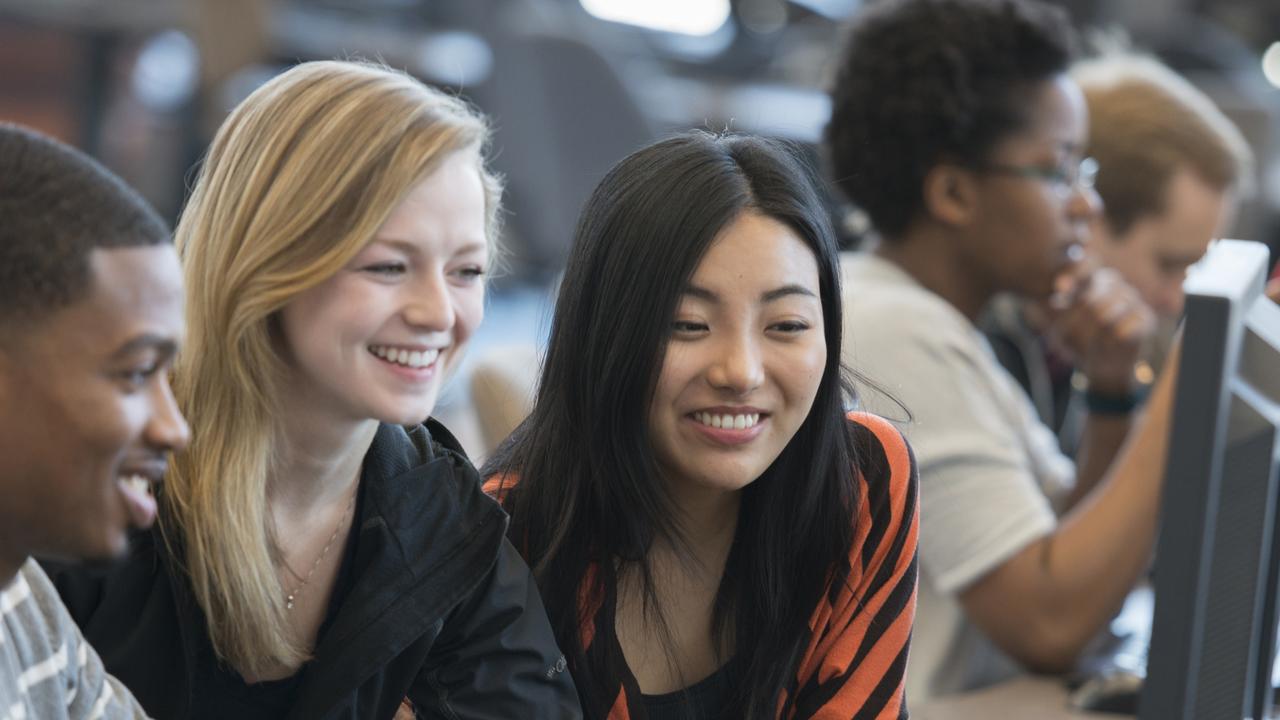Flinders Uni says its time to do things differently in international education

After a decade of unparalleled growth reflecting both Australia’s popularity as a safe, inclusive and exciting destination offering high quality education, and the rise of the middle class in many nations, our country had enjoyed the highest levels on record of growth in international students, growing by more than 150 per cent in the decade to 2019, nearing a million students in that year.
Then COVID-19 struck, borders closed and opportunities to study abroad nosedived. Our $40bn a year sector supporting a quarter of a million jobs found itself suddenly and severely contracting.
The introduction of vaccines is helping the world better manage the virus, so as cross border mobility increases again, so too does the appetite for studying internationally. Australia was however late to the table and many students have chosen to sate their appetite in countries such as Canada, the UK, and US – hit earlier and harder by Covid, but swifter to re-open borders and welcome students back, even offering incentives to encourage them.
Given the incredible contribution students make to social vibrancy, intercultural understanding and connectedness, and economic health, it’s little wonder it’s a competitive global space, but one in which Australia has fallen behind, not just due to lengthy border closures, but inadequate consideration given to maintaining the sector’s capacity, poor diplomacy, and unhelpful political signals.
And to make matters worse, just as the sector is starting to recover and students are starting to signal their return, we are again held back by many thousands of visa applications not being processed in time for students to start their studies mid-year.
So, what can we do as a sector to recalibrate and recover? The Australian Strategy for International Education 2021-2030 – and its four priorities of diversification, workforce skills alignment, student centredness and global competitiveness – offers a view into the government’s thinking, but we have an opportunity to be more nuanced.
Differentiating our offerings and delivering exceptional education that defines careers is vital, along with reversing the isolationist, self-interested image projected during the pandemic. Furthermore, it’s increasingly clear that students resent being treated as commodities whose education is predicated on their economic contribution.
With these factors in mind, we at Flinders University think it’s a globally opportune time to launch a bespoke new international student pathway to not just put out the welcome mat, but to ensure the doorway beyond is easily opened and that prospective students are supported across the threshold to achieve their education and ultimately their life ambitions.
The wholly owned but independently operated Flinders University Academy provides differentiation both in the market and from existing university structures, reflecting its unique purpose of teaching innovative pathway courses, offering tailored support, and providing our international students with a seamless transition to their chosen degree at Flinders. Whilst based at Flinders University’s Bedford Park campus, pathway teaching will occur across all campuses and teaching spaces.
The academy will teach four types of pathway courses, designed and tailored by Flinders staff for success in Flinders degrees, and employing specialist teachers experienced in transition pedagogy. These include pedigree ELICOS courses and a foundation program course to provide a pathway to their desired Flinders University degree. Focused pre-master’s courses will be taught collaboratively with our six colleges to build the confidence and skills of students entering master’s degrees across the University.
Five diploma courses will also be offered, with standard and accelerated options available. These will be based on Flinders’ curriculum, utilising the academy’s ethos of providing transition pedagogy and pre-eminent student support. By closely aligning the diploma courses to equivalent Flinders first-year curriculum, students who undertake these courses will be able to readily transition into the second year of many Flinders University degrees.
Importantly, we are developing a new hyper care model to provide students the best possible level of support with additional services to ensure that they excel in their pathway studies, setting them up to flourish in their studies and beyond.
This carefully conceived and constructed approach means students will be immersed in our university from day one; they will have a truly “Flinders” experience, benefit from the exceptional services we have across our campuses, become familiar with our values, ethos, and culture, and will be more ready than ever to enter their course of choice. It sends a strong message to prospective students that they matter.
Of course, like our fellow institutions Flinders will continue to showcase its strengths – our world class education and exceptional graduate outcomes at an institution on the cusp of being a world top 1 per cent university, our proud reputation as an innovator in contemporary education, and our continuing investment in creating a rich and vibrant environment in which to learn and live.
But differentiating our offerings in a way that puts students’ individual needs foremost is, we believe, the kind of distinctiveness needed to restore confidence in Australia as a destination of choice for international students.
Sebastian Raneskold is pro vice-chancellor (international) of Flinders University.



By any measure, it’s been an interesting time for international education in Australia.